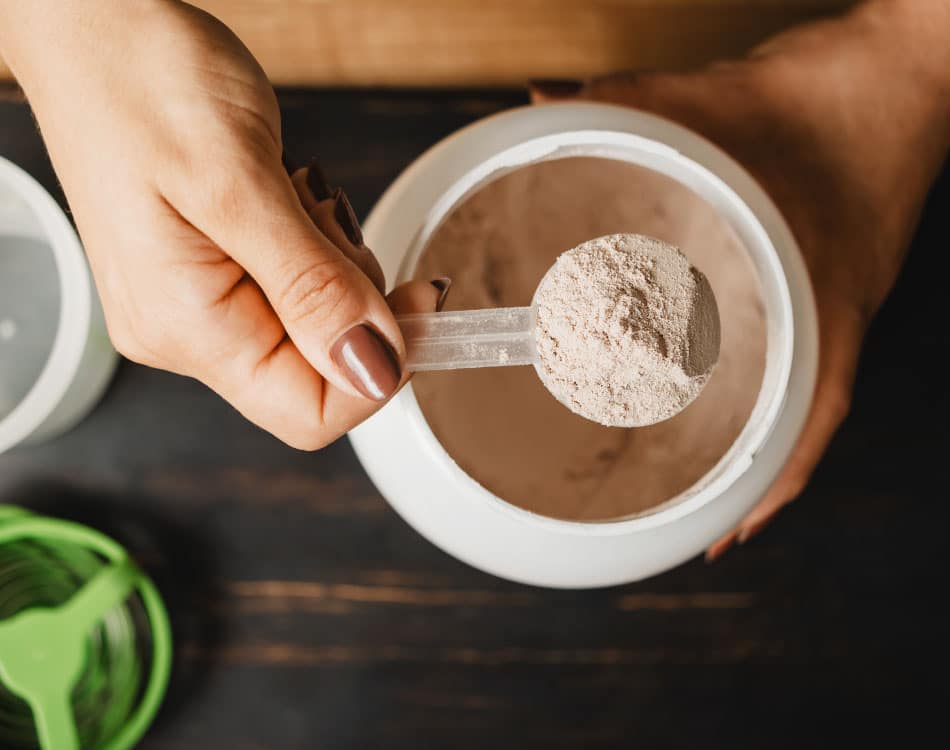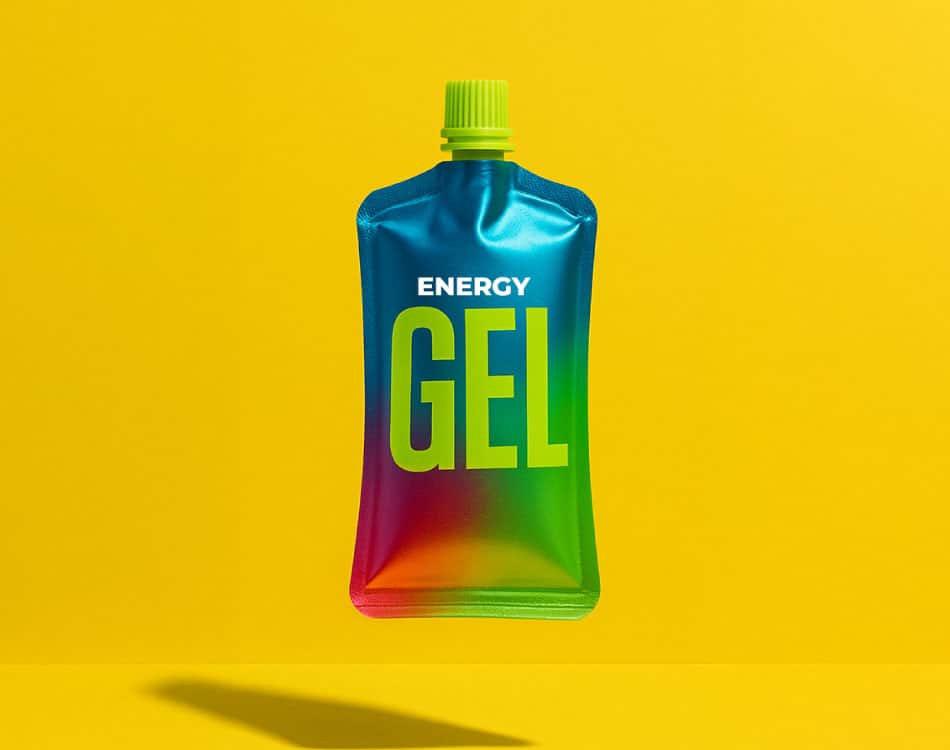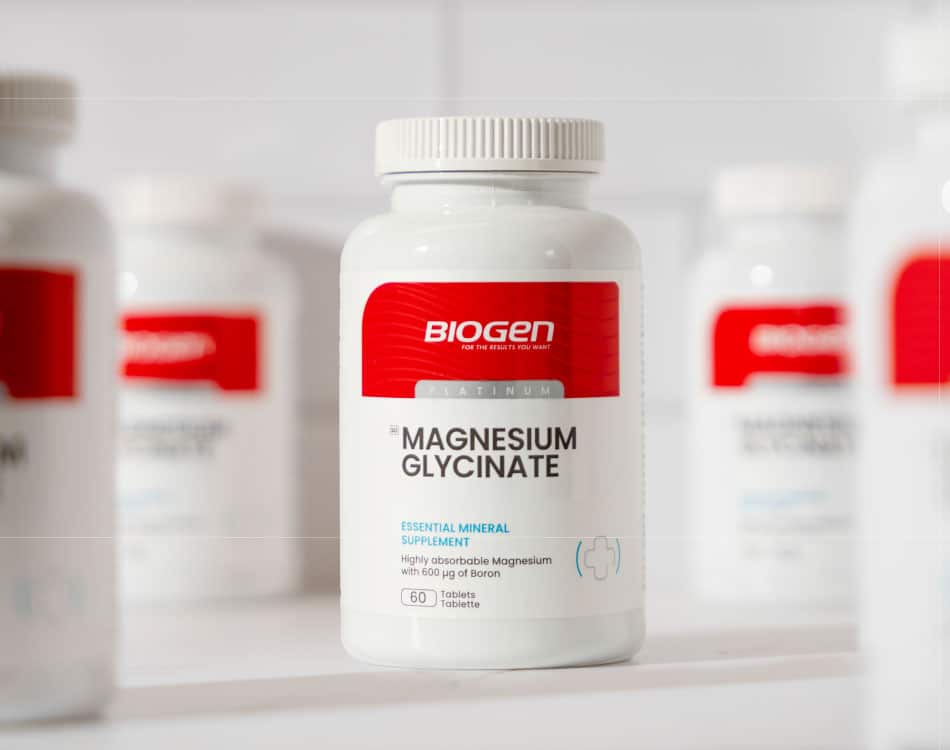Serious endurance athletes know that protein is just as important as carbohydrates for optimal recovery and performance.
After intense and sustained efforts, muscle fibres can experience micro-tears, with the amino acids we get from protein vital to rebuilding and strengthening these damaged tissues.
Protein also supports hormone regulation and immune system function, which are other critical factors in the recovery process.
The gold standard
Athletes who understand the importance of protein in their post-exercise nutrition plan make a point of including natural animal and plant-based sources in every meal and rely on a quality protein supplement for a convenient and effective protein dose soon after a training session or race.
When it comes to optimising recovery, whey protein is widely considered the gold standard due to its superior bioavailability (how quickly your body breaks down and absorbs the amino acids).
Whey also boasts a complete amino acid profile, containing all the essential amino acids (EAA) your body needs but cannot produce, including the branched-chain amino acids (BCAA) leucine, isoleucine and valine, which play a vital role in tissue repair.
Your muscles can also use amino acids for fuel when carb-derived (glycogen) energy reserves run low.
Blended benefits
A whey blend is a popular option among endurance athletes. These products are typically formulated with a mix of two or more whey protein sources, such as whey isolate, concentrate and hydrolysate.
Whey concentrate typically contains a low level of fat and cholesterol. As the lesser processed option, whey concentrate retains important bioactive compounds and contains some carbohydrates in the form of lactose, which can aid absorption after training.
Whey isolates are processed to remove fat and lactose. While usually lower in bioactive compounds, whey isolate is more rapidly absorbed and can contain over 90% protein by weight.
Whey hydrolysates are predigested, partially hydrolysed whey proteins, offering superior bioavailability for more rapid absorption.
When combined, blended whey products that contain whey protein hydrolysate, isolate and concentrate, offer a product that delivers a more sustained amino acid release profile.
Amino acid concentrations rise rapidly after drinking whey protein1, with levels rising after 20 minutes, typically peaking within 100 minutes and remaining elevated for 180–200 minutes. Levels typically return to baseline within 300 minutes.
Consider quality
However, not every whey protein supplement is created equal as some products may not contain the amount of protein listed on the label, or may not meet regulatory and safety standards.
In response to rising demand for quality-assured products, LGC ASSURE, a global leader in the life science tools sector, has added the Informed Protein certification to its established Informed Sport, Informed Choice, Informed Ingredient, and Informed Manufacturer programs.
Informed Protein is a global protein testing and verification program developed to verify the amount of protein within protein supplement products to give athletes and consumers confidence in their preferred brands.
Established by LGC, all certified products undergo analysis for free amino acids by LGC’s world-renowned laboratories using ISO 17025 accredited methods as well as a detailed manufacturing audit.
Certified products are also assessed for their total nitrogen content and are evaluated for their carbon/nitrogen ratio to ensure batch-to-batch consistency. Once products are certified, they will be regularly tested through blind sampling.
Protein supplements tested and certified by Informed Protein will carry the Informed Protein logo on product packaging stating they are regularly tested.
The presence of the Informed Protein logo gives supplement users assurance that the product label claims have been verified independently, which means the amount of protein listed on the packaging is what you get in the tub.
For more information on Informed Protein, visit informed-protein.com.
References:
-
Dangin M, Boirie Y, Garcia-Rodenas C, Gachon P, Fauquant J, Callier P, Ballèvre O, Beaufrère B. The digestion rate of protein is an independent regulating factor of postprandial protein retention. Am J Physiol Endocrinol Metab. 2001 Feb;280(2):E340-8. doi: 10.1152/ajpendo.2001.280.2.E340. PMID: 11158939.















